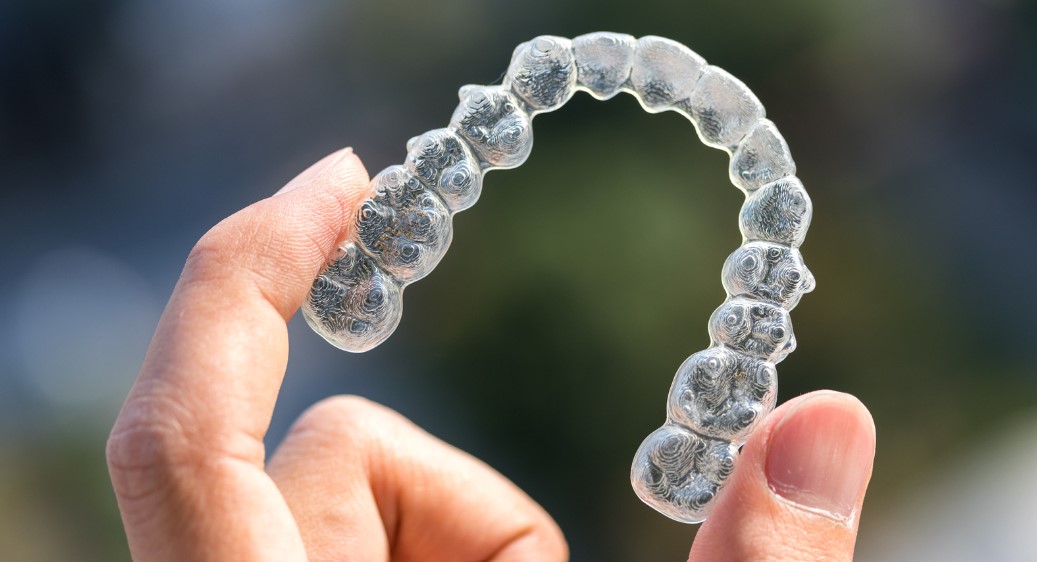Proper denture care is essential to keep them clean, stain-free, and comfortable. If you wear dentures, you probably want to know the best way to clean them to maintain their quality and ensure oral hygiene. In this article, we will share expert-approved tips and techniques for effective denture cleaning.
When it comes to cleaning dentures, there are various methods and products available. Some popular options include cleaning dentures with vinegar, baking soda, or even toothpaste. However, it is important to use the right techniques and products suitable for your dentures to avoid any damage or deterioration.
In the following sections, we will explore natural cleaning methods, common mistakes to avoid, and the importance of regular denture care. By the end of this article, you will have a comprehensive understanding of the best practices for denture cleaning.
So, let’s dive in and discover the most effective ways to clean your dentures and maintain their cleanliness and longevity.
How to Clean Dentures?
Regular denture care is essential for maintaining oral hygiene and preventing denture-related problems. By following these care tips and best practices, you can ensure the longevity and cleanliness of your dentures. Here are some key benefits of regular denture care:
- Maintaining Oral Hygiene: Proper denture care helps in maintaining good oral hygiene, preventing bad breath, and reducing the risk of oral infections.
- Preventing Denture-Related Problems: Regular care minimizes the chances of denture stains, plaque buildup, and irritation of the gums. It also reduces the risk of developing denture-related health issues, such as oral sores or infections.
- Enhancing Comfort: Dentures that are well-maintained and clean provide better comfort and fit, reducing any discomfort or irritation experienced while wearing them.
- Improving Functionality: Clean dentures enable effective chewing and speaking, allowing you to enjoy your favorite foods and communicate with confidence.
To maintain proper denture care, consider following these denture care tips and best practices:
| Tips for Denture Care |
|---|
| 1. Remove and Rinse: Remove your dentures after meals and rinse them thoroughly to remove food particles and debris. Use warm water for rinsing. |
| 2. Brush Daily: Brush your dentures daily with a soft-bristled brush and non-abrasive denture cleaner. Avoid using regular toothpaste as it can be too abrasive and damage the denture materials. |
| 3. Soak Overnight: Soak your dentures overnight in a denture cleanser solution or water to keep them moist and to remove any remaining debris or stains. |
| 4. Handle with Care: Always handle your dentures with care to prevent them from dropping or bending. Hold them over a soft towel or a sink of water to avoid breakage. |
Regular and proper denture care will not only keep your dentures clean and stain-free but also contribute to your overall oral health and well-being. By incorporating these denture care tips into your daily routine, you can maintain a healthy mouth and enjoy the benefits of clean, comfortable dentures.

Natural Denture Cleaning Methods
If you prefer a natural approach to cleaning your dentures, there are several effective methods that you can try. Not only are these methods gentle on your dentures, but they are also environmentally friendly. Let’s explore some natural ways to keep your dentures clean and fresh:
1. Cleaning Dentures with Lemon Juice
Lemon juice is a versatile natural cleaner that can effectively remove stains and odors from your dentures. Simply soak your dentures in a mixture of lemon juice and water for a few minutes. Then, brush them gently with a soft denture brush before rinsing thoroughly. Lemon juice not only cleans your dentures but also leaves them smelling fresh.
2. Cleaning Dentures with Baking Soda
Baking soda is another natural ingredient that can help keep your dentures clean. Create a paste by mixing baking soda with water, and then gently scrub your dentures with the paste using a soft brush. Baking soda is known for its natural whitening properties, making it an excellent choice for removing stains from dentures.
3. Benefits of Using Vinegar for Dentures
Vinegar is a powerful natural cleaner that can effectively eliminate bacteria and remove persistent stains from dentures. To use vinegar for denture cleaning, mix equal parts of vinegar and water, and soak your dentures in the solution for about 15-30 minutes. Afterward, rinse them thoroughly with water. Vinegar not only cleans but also helps to deodorize your dentures.
4. Using Saltwater for Denture Cleaning
Saltwater is a natural antiseptic that can help kill bacteria and prevent infections in your mouth. It is an excellent option for rinsing your dentures after meals to remove food particles. Simply dissolve a teaspoon of salt in a glass of warm water and rinse your dentures thoroughly. Saltwater not only cleans but also promotes oral hygiene.
5. Freshening Dentures Naturally
Aside from cleaning your dentures, it’s important to keep them smelling fresh. One natural way to freshen your dentures is by soaking them in a solution of mouthwash and water. This will not only eliminate odors but also leave your dentures feeling clean and refreshed.
Remember to always follow these natural denture cleaning methods in combination with regular brushing and soaking. Consult your dentist if you have any concerns or questions about natural denture cleaning.

| Denture Cleaning Method | Benefits |
|---|---|
| Cleaning Dentures with Lemon Juice | Effective stain and odor removal |
| Cleaning Dentures with Baking Soda | Natural whitening properties |
| Using Vinegar for Dentures | Bacteria elimination and stain removal |
| Using Saltwater for Denture Cleaning | Antibacterial properties and food particle removal |
| Freshening Dentures Naturally | Odor elimination and refreshing sensation |
Try these natural denture cleaning methods to keep your dentures clean, fresh, and comfortable without relying on harsh chemicals or abrasive cleaners.
Common Mistakes to Avoid in Denture Cleaning
Proper denture cleaning is essential for maintaining the hygiene and longevity of your dentures. However, it’s important to be aware of some common mistakes that people often make when cleaning their dentures. By avoiding these mistakes, you can ensure that your dentures remain clean, comfortable, and in good condition.
Avoiding Abrasive Cleaning Materials
Using abrasive cleaning materials, such as harsh toothbrushes or abrasive toothpaste, can cause damage to your dentures. These materials can scratch the denture surface, making it more susceptible to stains, plaque buildup, and bacterial growth. Instead, opt for a soft-bristle toothbrush or a denture brush specifically designed for cleaning dentures. These brushes are gentle yet effective in removing debris without causing any damage.
Avoiding Hot Water
Hot water may seem like a quick and easy way to clean your dentures, but it can actually be detrimental. Exposing your dentures to hot water can cause warping, distortion, and damage to the denture material. It’s best to use lukewarm or cool water when cleaning your dentures to ensure their longevity and prevent any potential issues.
The Dangers of Using Bleach
While bleach is known for its powerful cleaning properties, it should never be used on dentures. Bleach is highly corrosive and can damage the denture material, leading to discoloration, weakening of the structure, and potential harm to your oral health. Instead, opt for denture cleaning solutions that are specifically formulated for denture care.
“Using abrasive materials, hot water, or bleach on your dentures can cause irreversible damage. It’s important to follow proper denture cleaning techniques and use products that are specifically designed for denture care.” – Dr. Sarah Thompson, Denture Specialist
Avoiding these common mistakes will help ensure that your dentures remain clean, comfortable, and in good condition. By using gentle cleaning materials, avoiding hot water, and refraining from using bleach, you can maintain the longevity and hygiene of your dentures. If you have any concerns or questions about denture cleaning, it’s always best to consult with your dentist for professional guidance and advice.
| Mistakes to Avoid | Effects on Dentures |
|---|---|
| Using abrasive cleaning materials | Scratches on the denture surface, increased susceptibility to stains and plaque buildup |
| Using hot water | Warping, distortion, and damage to the denture material |
| Using bleach | Discoloration, weakening of the structure, potential harm to oral health |

Conclusion
Proper denture care and regular cleaning are vital for maintaining clean and comfortable dentures. By following the best practices, such as rinsing and brushing your dentures daily, soaking them overnight, and maintaining good oral hygiene, you can ensure the longevity and cleanliness of your dentures.
Remember to use gentle cleaning materials and avoid abrasive substances that can damage your dentures. Additionally, refrain from using hot water, as it can cause warping or cracking. Stick to the recommended denture cleaning products and techniques.
If you have any concerns or questions about denture care, it is best to consult with your dentist for professional guidance and advice. They can provide personalized recommendations based on your specific needs and help you maintain optimal denture hygiene.
FAQ
How should I clean my dentures?
The best way to clean dentures is to rinse them after every meal, brush them daily with a denture brush and non-abrasive toothpaste, and soak them overnight in a denture cleaning solution.
Can I clean my dentures with vinegar or baking soda?
While vinegar and baking soda can be used for natural denture cleaning, it’s important to use them in moderation and follow proper rinsing and soaking procedures afterwards.
Is it okay to clean dentures with toothpaste?
Yes, you can clean dentures with toothpaste, but make sure to use a non-abrasive toothpaste and a soft denture brush to avoid scratching the surface of the dentures.
Are there any natural ways to clean dentures?
Yes, you can clean dentures naturally by soaking them in water with lemon juice, brushing them with a paste made of baking soda and water, or using vinegar as a natural denture cleaning solution.
Can I use dish soap or Milton to clean my dentures?
While dish soap and Milton can be used to clean dentures in a pinch, it’s important to rinse them thoroughly afterwards to remove any residue and keep them safe for oral use.
What are some common mistakes to avoid in denture cleaning?
Some common mistakes to avoid in denture cleaning include using abrasive materials like harsh toothpaste or brushes, exposing dentures to hot water that can warp them, and using bleach or chemicals that can damage the denture material.
What is the best way to maintain clean dentures?
The best way to maintain clean dentures is to practice regular denture care, including daily rinsing and brushing, overnight soaking, and maintaining good oral hygiene by cleaning your mouth and gums.







